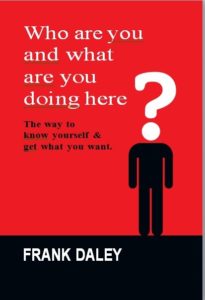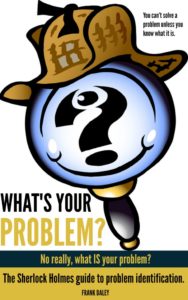 NO SELF-KNOWLEDGE DOOMS YOU
NO SELF-KNOWLEDGE DOOMS YOU
Mad Men’s Don Draper: how to screw up life—your own and everybody else’s.
The first job of our lives is to know ourselves.
If we fail to do it, nothing—nothing—can prevent us from failure, regret and emptiness.
This is brought home today in Salon by Heather Havrilevsky as she evaluates the sixth season of one of the most arresting, if disheartening shows ever on television, Mad Men (Madison Avenue Advertising Men).
Like The Sopranos, Mad Men concentrates on a fatally flawed central character.
Both Tony Soprano and Don Draper have gifts, wiles and some charm, but their lives are marked by lies, evasion and crimes, and by moral underpinnings stuck in slime so insubstantial it cannot carry the weight of a kitten.
These men are so caught up in their present circumstances, so tied to the fake “rules of the game” they think they are playing, that they can’t extricate themselves from the sheit and be the men they might have been.
Tony Soprano tries to understand himself—he regularly sees a psychiatrist seeking insight. Don Draper doesn’t seek insight into himself exactly—he knows he’s on dangerous ground—he tries instead to push his way through the world he created.
He seeks insight into how to move and succeed in the world he created.
Here’s Ms. Havrilevsky:
“Don Draper and his associates have demonstrated how we, as a country, became better and better at selling a full-color fantasy of the good life to ourselves and to the rest of the world. But in the process, we slowly poisoned our own culture with skin-deep lies about what it takes to be happy. In the workplace and at home, we demanded that our stories look more and more like the idealized stories on TV and the pretty advertisements in our magazines, pumping up our expectations, and intensifying our disappointment in ourselves and those around us.”
This is true, of course, and Draper’s stolen identity of a dead soldier to compensate for the lack of his own was the beginning of his ride to hell.
He can’t be who he is because there is no “there” there. No real person there.
There never was a person at his core.
It was not his fault at the beginning, coming from his early childhood, but there came a time to make a choice regarding personal determination—who he was and what he wanted to become–and he made the wrong choice.
From there, his personal wreckage was inevitable. He shows signs of trying to salvage it now but it will be difficult. He has no practice, no framework, no center of gravity.
Don Draper has no self-knowledge. It’s tricky for him, because he has no self.
Tony Soprano knew he did not understand himself. But he wanted to. Draper doesn’t really want to understand himself —he’s afraid of what he’ll find. He denied himself and lost himself.
“We have become so good at telling pretty stories that we’ve brainwashed ourselves in the process,” says Havrilevsky.
“Our leaders are those who look the best on TV, who mouth the syrupy jingles that dovetail with the lies we’re already telling ourselves, and who cover up their lies with more lies the most efficiently.”
In the season’s final episode on Sunday, June 24th, Draper was finally trying to tell some of the truth about his background. He does a bad job of it because he doesn’t know how to do it (never having done it before) or even what the truth is anymore.
He tells Hershey chocolate executives (to whom he is trying to sell an advertising program) some truth about his early life in a whorehouse but he botches it with a final comment that, while it might make some sense to the little boy he once wars, makes no sense in the pitch. (Which –until that moment—he was successfully selling.) He’s is so confused and unnerved he can’t separate one thing from another. He doesn’t know what words and thoughts go with which situations.
In a sense he has become a “madman.”
What the end of his speech does is highlight the banality and venality of much of the advertising business-–the selling of things to people who don’t need them. The creating of false impressions that turn into false desires that have no human currency.
“We know how out of character this moment is for Don,” writes Havrilovsky, “and we understand, intuitively, from years of experience in this glorious and deeply flawed country, just how difficult it is to own who you really are in this culture.”
She’s talking about the U.S. but it applies to us in Canada too and much of the western world.
“For all of the people who went from disgusted to outspoken thanks to the tragedies of 1968, most simply fell back into lives of quiet resignation in the wake of that horrible year. The most revolutionary and rebellious aspects of our culture 40 years ago are now used to sell shoes and market social networks and promote recording artists. We glorify authenticity as a concept, but actually standing up for what you think is right, and saying what you mean, is greeted, nine times out of 10, with awkward silence, or revulsion, or the blast of a fire hose ( …). Telling the truth is not a small thing today.”
Right, but finding the truth is even more basic and many people can’t find it and wouldn’t recognize it if it hit them with a shovel.
This is, clearly, no way to live but it is the way millions do live.
Don Draper hurts almost everyone–his former wife (the excellent January Jones in a largely one-note role of a depressed woman–who doesn’t know who she is either); his current wife (the Canadian actress Jessica Pare); his daughter; his co-workers; his friends (betraying one of them with the man’s wife); his protégées, and, well, everyone with whom he comes into contact.
He is a walking disaster but there are many more in the real world who, if not as cancerous to others as Draper, are equally spiritually suicidal.
Tony Soprano had enough insight to get professional help. But there isn’t any of that with Don. He occasionally reads dark material but all he gets from it is more angst.
However, It did prompt him to start a soul-search about his life. (Reading is good too!) We have to wait for the last season to see how that works. Don’t hold your breath.
A little knowledge is said to be a dangerous thing but any knowledge about oneself is better than none.
Don Draper might have one more year (season) to figure out this stuff. You have more time than that but not endless amounts of it.
You can learn more about yourself by joining us here at Self-Knowledge College.
If you aren’t a member yet please register above.
I won’t disappoint you.
If you liked this piece (or not!) please comment below or share it.







